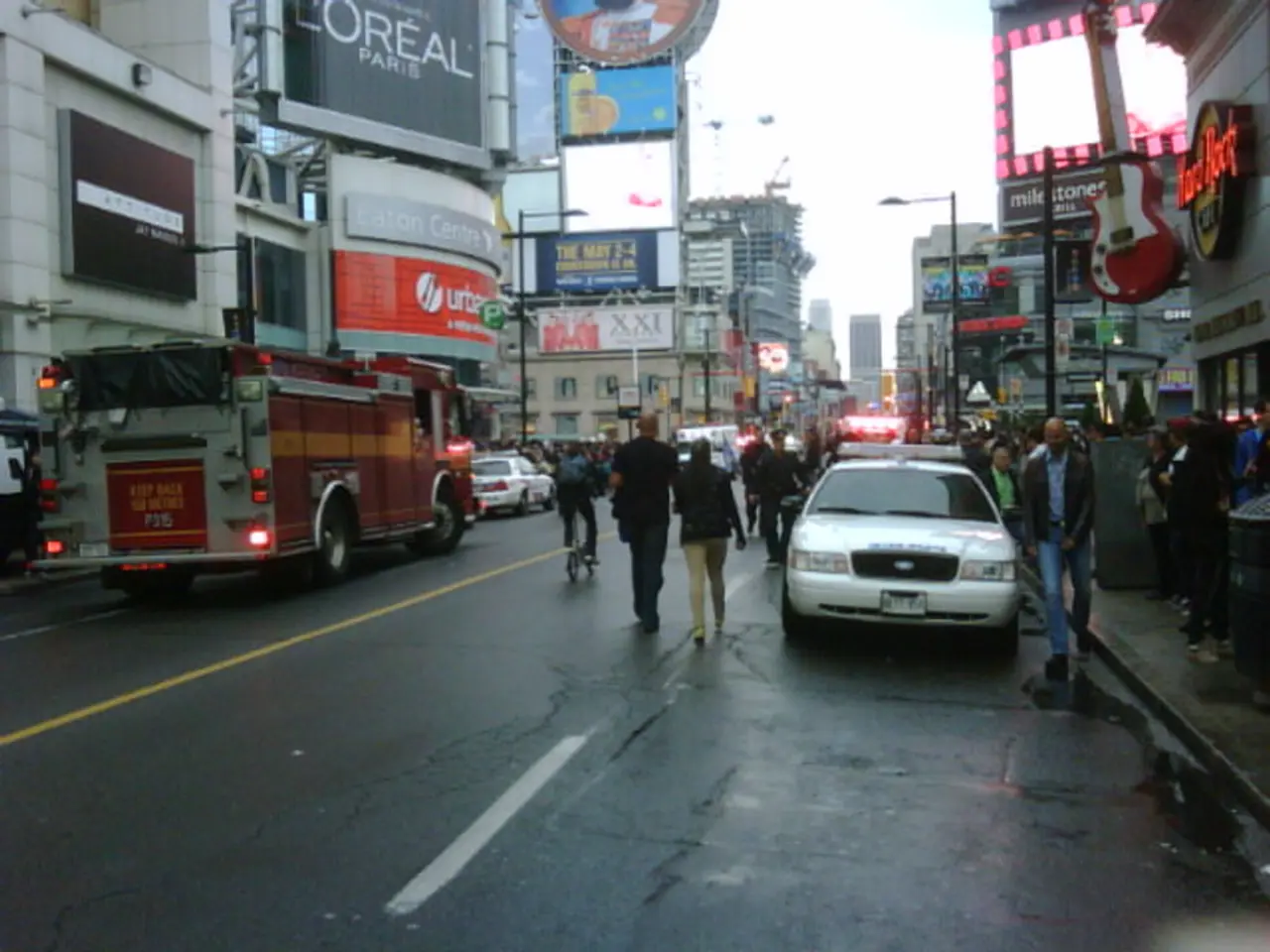Refueling on Germany's Highways: Financial Implications Explored
In the heart of the summer travel season, the German automobile association ADAC conducted an analysis that revealed some interesting findings about fuel prices in Germany.
For travelers, the location of the petrol station can significantly impact the cost of filling up. Motorway (highway) stations, due to their convenience and high traffic volume, tend to charge more per liter than those located on side streets or in town areas. This difference, while noticeable, usually amounts to a few cents rather than large sums.
The main reasons for this disparity include convenience and location, higher operating and rental costs, less competition, and time of day effects. Stations on highways benefit from the high traffic volume and convenience for travelers, allowing them to charge higher prices. Additionally, the higher operating costs and lower competition nearby contribute to the premium prices at motorway stations.
On the other hand, side-street or town stations usually have more competition nearby and lower overheads, which tends to keep prices lower. Local demand also plays a role, as stations in towns often cater to residents who fill up more frequently, leading to more competitive pricing.
During the day, petrol prices in Germany can fluctuate, often being slightly cheaper in the evening than in the morning. This pattern, while subtle, can add up over time and make filling up in the evening before a trip a recommended strategy for travelers.
For a vehicle with a 50-litre tank, the difference in the cost to fill up would be around €20. The ADAC advises drivers to avoid petrol stations on the motorways whenever possible, as a short detour is practically always worth it.
The analysis by ADAC found that the highest price difference between fuel prices at a highway station versus a nearby station on a smaller road was 57 cents. On average, fuel costs are approximately 40 cents more per litre at highway petrol stations compared to those on side streets. The average price difference for premium E10 petrol was found to be just under 44 cents per litre, and for diesel, it was more than 42 cents.
It's worth noting that at 90% of the filling stations, there were differences of at least 30 cents for E10, and at 88% of the filling stations, there were differences of at least 30 cents for diesel. The lowest price difference found was a mere 0.9 cents.
The large price differences overall were criticised by ADAC, but they acknowledged a certain surcharge as understandable. They recommend drivers to be vigilant and compare prices before filling up to ensure they are getting the best deal.
In summary, for travelers in Germany, filling up the tank in the evening before a trip is recommended to get relatively cheaper fuel prices. Additionally, avoiding motorway petrol stations whenever possible can help save money at the pump.
Travelers in Germany may find personal-finance benefits by filling up their vehicles' tanks in the evening before a trip, as prices tend to be slightly cheaper during that time. To save more on fuel, it is advisable to avoid petrol stations on highways and instead, opt for those located on side streets or in town areas, as they often offer lower prices due to less competition and lower operating costs.




